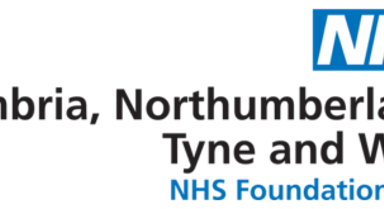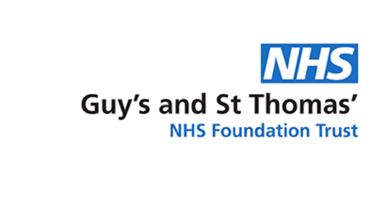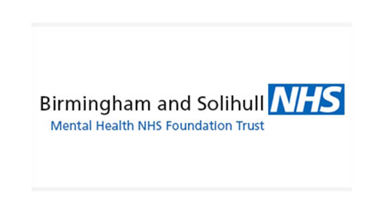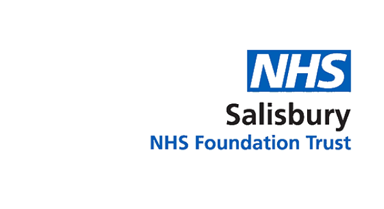Agents of change transform clinical correspondence operations at University Hospitals Bristol NHS Foundation Trust
Background
University Hospitals Bristol NHS Foundation Trust (UH Bristol) is an acute trust with more than 8,000 employees who deliver over 100 different clinical services from nine sites, providing care to a population of 350,000.
In 2013, UH Bristol decided to embark on a transformational change project as part of an ongoing focus on Clinical Correspondence operations and increasing the quality of both patient and staff experience.
The project brief paid particular attention to performance against savings targets, budgetary pressures, becoming paperlight, structuring documentation and increasing efficiency.
Issues faced
UH Bristol identified wide ranging issues throughout its outpatient Clinical Correspondence processes; from Dictation and transcription to the distribution of letters. Problems identified included delays across the process, meaning that in some cases the Trust was spending money on outsourced transcription services to assist with backlogs. Patients weren’t receiving GPs letters in a timely manner nor was correspondence being generated in a standardized or structured way - each department was working differently.
Consequently the Trust did not have a standardized process for producing clinical correspondence. In addition, staff were spending too much time on administrative tasks, including the manual transcription of Dictations, and were subsequently not able to dedicate sufficient, quality time to dealing with patient issues.
A key part of the problem analysis identified that clinicians Dictate 200 to 300 words per minute whereas the average medical secretary transcribes 65 to 90 words per minute; therefore an average medical secretary spends 4.5 minutes transcribing for every minute of a Dictation. An objective was set to reduce the amount of time medical secretaries spend on transcription, from 4.5 to 2.5 minutes for every minute of Dictation.
Other objectives included: the employment of a streamlined and cost effective secretarial process system that would eliminate both backlogs and the requirement for outsourced transcription services; an outpatient correspondence process that would turnaround letters within the appropriate clinical timescales (within 5 days) and an enhanced, patient-focused secretarial service that would improve the patient experience.
Underpinning a lot of the issues was the limited availability of information and data about level or distribution of clinical or secretarial workload. Evaluating the size of the issue was, itself, a huge task.
Solution
UH Bristol’s mission is guided by four values of which ‘Embracing Change’ is one. That overarching perspective was critical in gathering momentum for such a large and important project.
UH Bristol insisted the solution came from a proven supplier with enough skill and resource to manage a major project, with technology designed for both current and future Healthcare needs. It was specified that the chosen technology be fully operational and achieve a high level of medical-specific Speech Recognition shortly after implementation.
UH Bristol implemented workflow, Dictation and BigHand Speech Recognition technologies to streamline processes and reduce costs. The solution was designed specifically to minimize the required change for the clinicians;
- The Dictation is generated in exactly the same way as it was before. The Clinicians Dictate directly from a pregenerated Clinic List in the system, meaning each Dictation is automatically and correctly tagged per patient
- This sound file is then routed securely to a BigHand Speech Recognition service that is hosted within the N3 network
- The resulting draft letter is returned to the relevant medical secretary who, on opening the file, is presented with the transcribed text within an editor
- This editor has a feature set designed to maximize the efficiency of proof reading and editing; words are highlighted as the playback is controlled with the foot pedal and the auto text function speeds up any required changes
- Changes made in the editor are sent back to the M*Modal servers for learning and improved accuracy over time
- The automated demographic retrieval populates relevant address and GP details into a MS Word document
- On completion of the editing step, the work is submitted back to the Dictation author who is presented with a readily accessible list of documents awaiting approval
- Using a unique Document Console function within the solution, clinicians can rapidly check and electronically sign/ approve documents
- The final step then includes some intelligent routing and interfacing with UH Bristol’s own clinical document store and subsequently onward transmission electronically to the GP accordingly
Benefits
UH Bristol is now benefiting from a highly visible, workflow, automatic speech to text transcription and the highly efficient electronic management of Clinical Correspondence.
Within one year of operation, the time spent on transcription tasks has reduced dramatically. The number of letters that secretaries are able to process per month has doubled and significant improvements in turnaround time have been felt across departments:
- Respiratory from 20 days to 6 days
- Cardiac surgery from 20 days to 9 days
- Cardiology from 18 days to 7 days
- GUCH (Grown Up Congenital Heart) from 15 days to 8 days
Not only was throughput increased, turnaround time decreased and backlog diminished, but the Trust has been able to eliminate the need for any dictations to be outsourced to external agencies. This is saving the Trust a significant sum annually on top of the efficiency benefits outlined above. However, it must be emphasized that to achieve these excellent results a considerable amount of time and effort has been put in by administration managers and their teams to ensure robust, sustainable working practices are in place.
Following implementation, administrative teams are able to focus more of their time on higher value patient liaison tasks.
Managing change
The project was managed by UH Bristol Transformation Manager Mike Milton. Critically, the project had a senior sponsor who was both engaged and had the authority to enact relevant decisions and change. The Clinical lead was also actively involved and enthusiastic. There was a designated admin manager for each division, a technical lead who was engaged from the outset. The training lead was involved throughout the process, rather than being introduced towards the end and super-users were identified to champion the solution at a local level.
Identifying the barriers to change was imperative. Whether that was secretaries fearful of losing their jobs or Clinicians concerned about access to their secretaries, each barrier needed to be dealt with formally, positively and early. UH Bristol used a combination of demonstrations to users, workshops with key groups, drop in sessions and senior executive briefings. The key thread across all those activities related to the collective
benefits UH Bristol aimed to generate as well as the reasons behind the desired change.
As one example, 165 medical secretaries were involved in six workshops facilitated by UH Bristol and the supplier over three days. The positive impact of these was highly significant.
Mike Milton’s top 3 lessons for change:
- Get users involved
- Ensure the sponsor is engaged and enthused
- Identify and communicate the reasons for change and the benefits sought
As with any BigHand Speech Recognition related project the focus at UH Bristol had to be on the people. The technology was critical, but without the commitment and enthusiasm of the end users the implementation of the change program would have been significantly hindered.
The chosen partner
BigHand, a leading supplier of workflow, dictation and M*Modal intelligent speech technologies partnered with UH Bristol to deliver a solution that supports the current and future needs of similar healthcare Trusts across the board.
The solution implemented supports the 2018 paperless agenda, enables and enhances the tracking and management of performance against saving targets and offers a host of flexible integrated mobile working solutions to push care into the community.
UH Bristol management feel it is important to encourage their staff to recognize that we live in a world where business as usual is change. In other words we need to keep re-examining our processes to identify further opportunities to make cash savings and improve the overall patient experience. To achieve this administration managers continue to meet on a regular basis to share learning and develop action plans on the delivery of further benefits in the clinical correspondence process.
Key benefits for University Hospital Bristol
- One streamlined service has reduced costs and increased efficiency
- Eliminated the requirement for outsourced transcription services
- Helped remove a seemingly never ending backlog of Dictations
- Automatic speech to text transcription increases productivity
- Supports the 2018 paperless agenda for the Trust
Next stages
UH Bristol is already planning the next stage of the project which includes further integration and voice enablement of their EPR as well as broader community and mobile working options using BigHand’s SmartPhone and Tablet applications.






